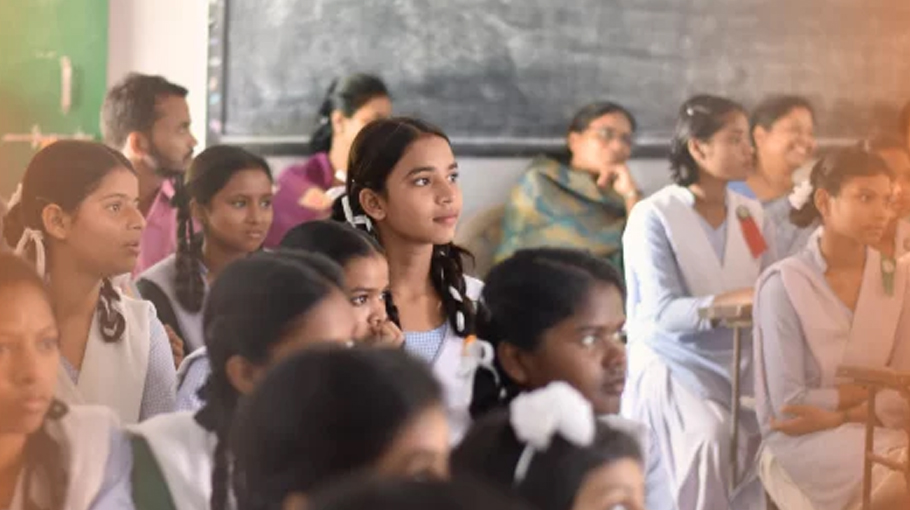‘Reform curriculum to instill values in children’

Speakers at a seminar have underscored the need for reforming educational curriculum from primary to higher secondary level to help students develop moral values in the interest of building a developed and civilized nation.
Noted academicians and current and retired senior military officials on Sunday spoke at the seminar on ‘Education and Ethics’ with Major General (retd) Alauddin Mohammad Abdul Wadud, chairman of RAOWA in the chair. The Retired Armed Forces Officers’ Welfare Association (RAOWA) arranged the seminar
“Moral education should be given importance in the school curriculum. There will be religious education from class III to class X. Along with that, scientific ethics should be given room. So, a radical reform in the school curriculum is a must,” said Abul Kashem Fazlul Haque, noted academician who is also former professor of Dhaka University’s Bangla department.
“We should prioritise teaching of ethics and values in the school curriculum. Topics on moral education must be included in the school syllabus, especially, in the syllabus at primary level” said some other speakers of the seminar.
Speaking on the occasion as the chief guest, Education Minister Dr Dipu Moni said that the entire curriculum from the pre-primary to the higher secondary level is being changed upholding the spirit of Bangladesh War of Liberation. However, religion from the textbooks won’t be excluded. A specific group of people is spreading propaganda saying religious education is being scrapped from the new curriculum. The information is not correct, she claimed.
“We are trying to make a good combination of skills and mentality so that the students develop the mindset from school level. We are now focusing on technical education for becoming more developed and prosperous. It will be good if 50% of the students are enrolled in technical stream,” the minister told the seminar at the RAOWA Helmet Convention Hall in the capital.
Prof Dr Dil Afroza Begum, acting chairman of University Grants Commission (UGC), attended the seminar as the special guest, while Major General (retd) Mohammad Quamruzzaman, vice-chairman (army) of RAOWA, moderated the event.
Dr Syed Manzoorul Islam, a former professor of Dhaka University’s English department, Lieutenant General Ataul Hakim Sarwar Hasan, chief of general staff (CGS) of Bangladesh Army, and Prof Dr Khurshida Begum, Bangabandhu Chair Professor in Khulna University of Engineering and Technology (KUET) took part in the discussion.
In her speech, Dr Dipu Moni called upon administrators to focus on technical education to reduce the unemployment rate of Bangladesh. In some developed countries, 50% of the students are educated in technical stream. “We call upon the authorities of the higher educational institutions to set up the curriculum in line with the demands of the present world,” she said.
She said that the first education policy of Bangladesh was formulated following the initiative of Father of the Nation Bangabandhu Sheikh Mujibur Rahman. Known as Qudrat-e-Khuda Education Commission Report, that education policy highlighted the importance of incorporating moral education in the curriculum. “Economic development does not mean moral development. We also need to develop our moral values,” she said.
Prof Abul Kashem Fazlul Haque said that each of the school level students will read the four subjects currently being read and learn about each other’s religions. Moral values will be enhanced through this.
In his speech, Dr Syed Manzoorul Islam said that primary level is the basic of education. The primary teachers are the ones who actually shape students. Children should be taught moral education at the primary education level, through creative means. He called for developing primary schools in the country. He suggested minimizing the examinations in school level as much as possible.
Prof Dr Syed Manzoorul Islam further said that Bangladesh is not a barren land of moral practice. “We educated people practice immorality more. In a country where there is a juvenile gang culture, the moral level of the country is not really high. A country can’t really progress with a lack of principles. We have to think about ethics in our country,” he added.
In his address of welcome, Alauddin Mohammad Abdul Wadud said that alongside family and the society, moral and quality education depends on quality teachers. To impart moral education, the teachers also need to practice moral behaviour so that students could learn from them.




